I wanted to finish sunday’s piece on Epicurus’ asceticism with a lengthy quote from G. K. Chesterton’s Four Faultless Felons. [gutenberg] Chesterton can be relied upon to flip things beautifully on their head, and he does so.
Mr. Asa Lee Pinion, of the Chicago Comet, had crossed half of America, the whole of the Atlantic, and eventually even Piccadilly Circus, in pursuit of the notable, if not notorious figure of Count Raoul de Marillac. Mr. Pinion wanted to get what is called “a story”; a story to put in his paper. He did get a story, but he did not put it in his paper. It was too tall a story, even for the Comet. Perhaps the metaphor is true in more ways than one, and the fable was tall like a church-spire or a tower among the stars: beyond comprehension as well as belief. Anyhow, Mr. Pinion decided not to risk his readers’ comments. But that is no reason why the present writer, writing for more exalted, spiritual and divinely credulous readers, should imitate his silence.
Really, the anecdote he heard was quite incredible: and Mr. Pinion was not intolerant. While the Count was painting the town red and himself black, it was quite possible to believe that he was not so black as he was painted. After all, his extravagance and luxury, however ostentatious, did no particular harm to anybody but himself; and if he associated with the dissipated and degraded, he had never been known to interfere with the innocent or the reputable. But while it was credible enough that the nobleman was not so black as he was painted, he certainly could not be quite so white as he was painted, in the wild story that was told that evening. The story came from a friend of the Count’s, much too friendly a friend, thought Mr. Pinion, friendly to the point of feeble-mindedness. He supposed it must be a delusion or a hoax; anyhow he did not put it into his paper. Yet it is because of this highly improbable anecdote that the Count de Marillac stands at the opening of this book, to introduce the four stories which were put forth as parallels to his own.
But there was one fact which struck the journalist as odd even at the beginning. He understood well enough that it would be difficult to catch the Count anywhere, as he whirled from one social engagement to another, in the manner appropriately called “fast”. And he was not offended when Marillac said he could only spare ten minutes at his London club before going on to a theatrical first-night and other ensuing festivities. During that ten minutes, however, Marillac was quite polite, answered the rather superficial society questions which the Comet wanted answered, and very genially introduced the journalist to three or four club companions or cronies who were standing about him in the lounge, and who continued to stand about after the Count himself had made his beaming and flashing exit.
“I suppose,” said one of them, “that the naughty old man has gone to see the naughty new play with all the naughty new people.”
“Yes,” grunted a big man standing in front of the fire. “He’s gone with the naughtiest person of all, the author, Mrs. Prague. Authoress, I suppose she’d call herself—being only cultured and not educated.”
“He always goes to the first night of those plays,” assented the other. “P’raps he thinks there won’t be a second night, if the police raid the place.”
“What play is it?” asked the American in a gentle voice. He was a quiet little man with a very long head and a refined falcon profile; he was much less loud and casual than the Englishmen.
“Naked Souls,” said the first man with a faint groan. “Dramatized version of the world-shaking novel ‘Pan’s Pipes.’ Grapples grimly with the facts of life.”
“Also bold, breezy and back to Nature,” said the man by the fire. “We hear a lot just now about Pan’s Pipes. They seem to me a little too like drain-pipes.”
“You see,” said the other, “Mrs. Prague is so very Modern, she has to go back to Pan. She says she cannot bear to believe that Pan is dead.”
“I think,” said the large man, with a touch of heavy violence, “that Pan is not only dead but rotting and stinking in the street.”
It was the four friends of Marillac who puzzled Mr. Pinion. They were obviously rather intimate friends, and yet they were not, on the whole, of the sort likely to be even acquaintances. Marillac himself was much what might have been expected, rather more restless and haggard than his handsome portraits might have implied, a thing likely enough with his late hours and his advancing years. His curly hair was still dark and thick, but his pointed grey beard was whitening fast; his eyes were a little hollow, and had a more anxious expression than could be inferred, at a distance, from his buoyant gestures and rapid walk. All that was quite in character, but the tone of the group was different. One figure alone out of the four seemed in some sense of Marillac’s world, having something of the carriage of a military officer, with that fine shade that suggests a foreign officer. He had a clean-shaven, regular and very impassive face; he was sitting down when he bowed politely to the stranger, but something in the bow suggested that, standing up, he would have clicked his heels. The others were quite English and quite different. One of them was the very big man, with big shoulders bowed but powerful and a big head not yet bald but striped with rather thin brown hair. But the arresting thing about him was that indescribable suggestion of dust or cobwebs that belongs to a strong man leading a sedentary life, possibly scientific or scholarly, but certainly obscure, in its method if not its effect; the sort of middle-class man with a hobby, who seems to have been dug out of it with a spade. It was hard to imagine a more complete contradiction to such a meteor of fashion as the Count. The man next him, though more alert, was equally solid and respectable and free from fashionable pretensions; a short, square man with a square face and spectacles, who looked like what he was, an ordinary busy suburban general practitioner. The fourth of Marillac’s incongruous intimates was quite frankly shabby. Grey seedy clothes hung limply on his lean figure, and his dark hair and rather ragged beard could, at the best, be only excused as Bohemian. He had very remarkable eyes, sunk very deep in his head and yet, by a paradox, standing out like signals. The visitor found himself continually drawn to them, as if they were magnets.
But, all together, the group bothered and bewildered him. It was not merely a difference of social class, it was an atmosphere of sobriety and even of solid work and worth, which seemed to belong to another world. The four men in question were friendly in a modest and even embarrassed manner; they fell into conversation with the journalist as with any ordinary equal in a tram or a tube, and when, about an hour later, they asked him to share their dinner at the club, he had no such sense of strain as he might have felt in facing one of the fabulous Luculline banquets of their friend the Count de Marillac.
For however seriously Marillac might or might not be taking the serious drama of Sex and Science, there was no doubt that he would take the dinner even more seriously. He was famous as an epicure of almost the classic and legendary sort, and all the gourmets of Europe reverenced his reputation. The little man with the spectacles glanced at this fact, indeed, as they sat down to dinner:
“Hope you can put up with our simple fare, Mr. Pinion,” he said. “You’d have had a much more carefully selected menu if Marillac had been here.”
The American reassured him with polite expressions about the club dinner; but added:
“I suppose it is true that he does make rather an art of dining?”
“Oh, yes,” said the man in spectacles. “Always has all the right things at the wrong times. That’s the ideal, I suppose.”
“I suppose he takes a lot of trouble?” said Pinion.
“Yes,” said the other. “He chooses his meals very carefully. Not carefully from my point of view. But then I’m a doctor.”
Pinion could not keep his eyes off the magnetic eyes of the man with the shabby clothes and shaggy hair. Just now the man was gazing across the table with a curious intentness, and in the ensuing silence, he suddenly intervened.
“Everybody knows he’s very particular in choosing his dinner. But I bet not one man in a million knows the principle on which he chooses it.”
“You must remember,” said Pinion, with his soft accent, “that I am a journalist, and I should like to be the one man in a million.”
The man opposite looked at him steadily and rather strangely for a moment, and then said:
“I have half a mind. . . . Look here, have you any human curiosity as well as journalistic curiosity? I mean, would the one man like to know, even if the million never knew?”
“Oh, yes,” replied the journalist, “I have plenty of curiosity, even about things I am told in confidence. But I can’t quite see why Marillac’s taste in champagne and ortolans should be so very confidential.”
“Well,” answered the other gravely, “why do you think he chooses them?”
“I guess I’ve got a bromide mind,” said the American, “but I should rather suspect him of choosing the things he likes.”
“Au contraire, as the other gourmet said when asked if he lunched on the boat.”
The man with the peculiar eyes broke off from his flippant speech, plunged for a few moments into profound silence, and then resumed in so different a tone that it was like another man suddenly speaking at the table.
“Every age has its bigotry, which is blind to some particular need of human nature; the Puritans to the need for merriment, the Manchester School to the need for beauty, and so on. There is a need in man, or at least in many men, which it is not fashionable to admit or allow for in these days. Most people have had a touch of it in the more serious emotions of youth; in a few men it burns like a flame to the last, as it does here. Christianity, especially Catholic Christianity, has been blamed for imposing it, but in fact, it rather regulated and even restrained the passion than forced it. It exists in all religions, to a wild and frantic extent in some of the religions of Asia. There men hack themselves with knives or hang themselves on hooks, or walk through life with withered arms rigidly uplifted, crucified upon empty air. It is the appetite for what one does not like. Marillac has it.”
“What on earth—” began the startled journalist, but the other continued:
“In short, it is what people call Asceticism, and one of the modern mistakes is not allowing for its real existence in rare but quite real people. To live a life of incessant austerity and self-denial, as Marillac does, is surrounded with extraordinary difficulties and misunderstandings in modern society. Society can understand some particular Puritan fad, like Prohibition, especially if it is imposed on other people, above all, on poor people. But a man like Marillac, imposing on himself, not abstinence from wine, but abstinence from worldly pleasures of every sort. . . .”
“Excuse me,” said Pinion in his most courteous tones, “I trust I’d never have the incivility to suggest that you have gone mad, so I must ask you to tell me candidly whether I have.”
“Most people,” replied the other, “would answer that it is Marillac who has gone mad. Perhaps he has; anyhow, if the truth were known, he would certainly be thought so. But it isn’t only to avoid being put in a lunatic asylum that he hides his hermit’s ideal by pretending to be a man of pleasure. It’s part of the whole idea, in its only tolerable form. The worst of those Eastern fakirs hung on hooks is that they are too conspicuous. It may make them just a little vain. I don’t deny that Stylites and some of the first hermits may have been touched with the same danger. But our friend is a Christian anchorite; and understands the advice, ‘When you fast, anoint your head and wash your face.’ He is not seen of men to fast. On the contrary, he is seen of men to feast. Only, don’t you see, he has invented a new kind of fasting.”
Mr. Pinion of the Comet suddenly laughed, a curt and startled laugh, for he was very quick and had already guessed the joke.
“You don’t really mean—” he began.
“Well, it’s quite simple, isn’t it?” replied his informant. “He feasts on all the most luxurious and expensive things that he doesn’t like. Especially on the things that he simply detests. Under that cover, nobody can possibly accuse him of virtue. He remains impenetrably protected behind a rampart of repulsive oysters and unwelcome aperitifs. In short, the hermit must now hide anywhere but in the hermitage. He generally hides in the latest luxurious gilded hotels, because that’s where they have the worst cooking.”
“This is a very extraordinary tale,” said the American, arching his eyebrows.
“You begin to see the idea?” said the other. “If he has twenty different hors-d’œuvres brought to him and takes the olives, who is to know that he hates olives? If he thoughtfully scans the whole wine-list and eventually selects a rather recondite Hock, who will guess that his whole soul rises in disgust at the very thought of Hock: and that he knows that’s the nastiest—even of Hocks? Whereas, if he were to demand dried peas or a mouldy crust at the Ritz, he would probably attract attention.”
“I never can quite see,” said the man in spectacles restlessly, “what is the good of it all.”
The other man lowered his magnetic eyes and looked down with some embarrassment. At last he said:
“I think I can see it, but I don’t think I can say it. I had a touch of it myself once, only in one special direction, and I found it almost impossible to explain to anybody. Only there is one mark of the real mystic and ascetic of this sort; that he only wants to do it to himself. He wants everybody else to have what wine or smokes they want and will ransack the Ritz for it. The moment he wants to dragoon the others, the mystic sinks into a mire of degradation and becomes the moral reformer.”
There was a pause, and then the journalist said suddenly:
“But, look here, this won’t do. It isn’t only wasting his money on wining and dining that has got Marillac a bad name. It’s the whole thing. Why is he such a fan for these rotten erotic plays and things? Why does he go about with a woman like Mrs. Prague? That doesn’t seem like a hermit, anyhow.”
The man facing Pinion smiled and the heavier man on his right half turned with a sort of grunt of laughter.
“Well,” he said, “it’s pretty plain you’ve never been about with Mrs. Prague.”
“Why, what do you mean?” asked Pinion; and this time there was something like a general laugh.
“Some say she’s his Maiden Aunt and it’s his duty to be kind to her,” began the first man, but the second man interrupted him gruffly:
“Why do you call her a Maiden Aunt when she looks like a—”
“Quite so, quite so,” said the first man rather hastily, “and why ‘looks like’—if it comes to that?”
“But her conversation!” groaned his friend. “And Marillac stands it for hours on end!”
“And her play!” assented the other. “Marillac sits through five mortal acts of it. If that isn’t being a martyr—”
“Don’t you see?” cried the shabby man with something like excitement. “The Count is a cultivated and even learned man; also he is a Latin and logical to the point of impatience. And yet he sticks it. He endures five or six acts of a Really Modern Intellectual Incisive Drama. The First Act in which she says that Woman will no longer be put on a pedestal; the Second Act in which Woman will no longer be put under a glass case; the Third Act in which Woman will no longer be a plaything for man, and the Fourth in which she will no longer be a chattel; all the clichés. And he still has two acts before him, in which she will not be something else, will not be a slave in the home or an outcast flung from the home. He’s seen it six times without turning a hair; you can’t even see him grind his teeth. And Mrs. Prague’s conversation! How her first husband could never understand, and her second husband seemed as if he might understand, only her third husband carried her off as if there was real understanding—and so on, as if there were anything to be understood. You know what an utterly egotistical fool is like. And he suffers even those fools gladly.”
“In fact,” put in the big man in his brooding manner, “you might say he has invented the Modern Penance. The Penance of Boredom. Hair-shirts and hermits’ caves in a howling wilderness would not be so horrible to modern nerves as that.”
“By your account,” ruminated Pinion, “I’ve been chasing a pleasure-seeker tripping on the light fantastic toe and only found a hermit standing on his head.” After a silence he said abruptly, “Is this really true? How did you find it out?”

The illustrations are screengrabbed from Peter Greenaway’s The Cook, The Thief, His Wife, and Her Lover – which is a beautiful but weird and occasionally horrible movie. It’s typical of Peter Greenaway, in other words.
You know, he finally made his pile.
Well he got himself a mansion on Butler and Sheff
An’ he was livin’ in the latest style;
But I run into him, he was eatin’ in a greasy spoon
While parked in front was his big limousine.
I said, “Buddy, you’ve got so much money
How come you’re in here, eatin’ beans?”
An’ he said
Beans, beans taste fine.
An’ after you’ve been drinkin’ champagne and brandy
You gonna settle for wine.
He said “The world is funny, and people are strange,
And man is a creature of constant change, and
After you’ve been havin’ steak for a long time
Beans, beans taste fine.”
In a rowdy old Clark Street Bar.
I said, “Friend, is it true what I heard about you?
I heard you married a beautiful 18-year-old shapely movie star,
Yet here you sit, tryin’ to make out with some barfly
Who’s too old and ugly to be true.”
He said, “Shelley, you’re still a very young man
So sit down. I’ll explain it all to you.
He said
Beans, beans taste fine.
An’ after you’ve been drinkin’ champagne and Chivas Regal
You gonna settle for Thunderbird wine.
He said “The world is funny, and people are strange,
And man is a creature of constant change, and
After you’ve been havin’ steak for a long time
Beans, beans taste fine.”

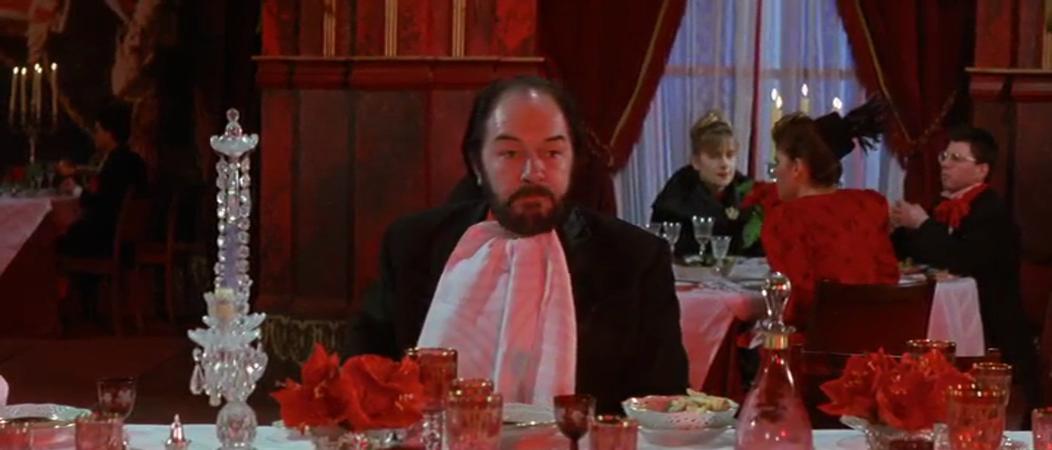
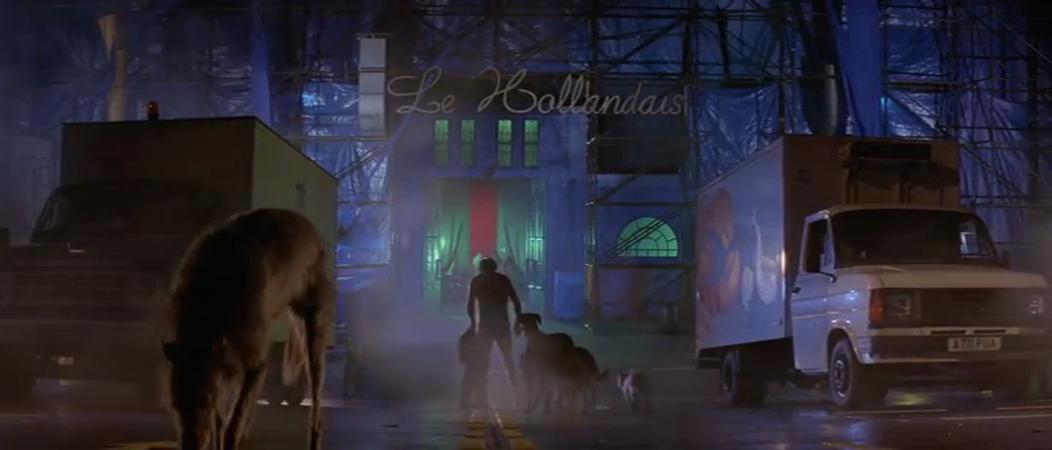
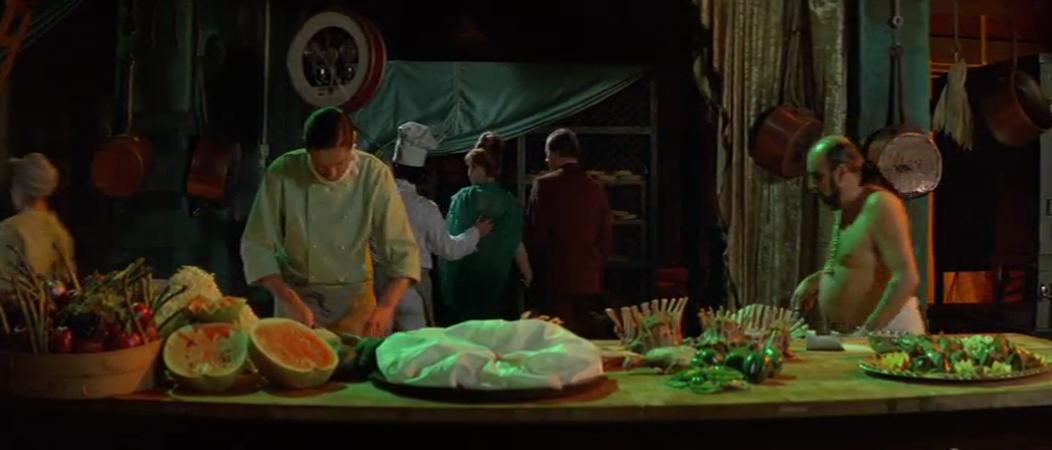
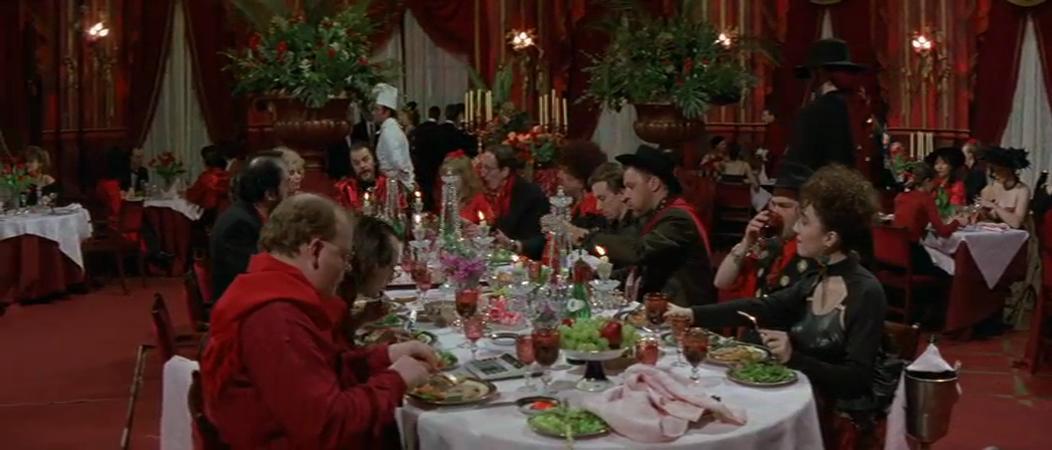
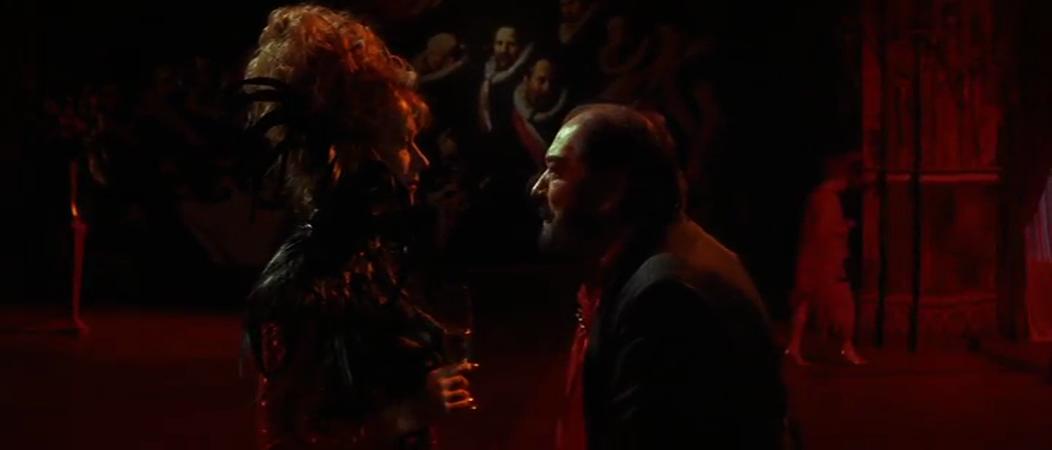
An entertaining conceit – but insofar as it requires Chesterton’s wordiness to explain, of very little practicality as an excuse (as if any were needed, anyhow) for one’s [ahem!] excesses in these hasty modern days.
Very interesting idea of an ascete, and really bringing in the idea that beauty is in the eye of the beholder, as is ugliness… I must admit to being somewhat of an Epicurean myself – though not to the point of asceticism. Life is, to at least some extent, to be enjoyed. Of course, what I enjoy is not necessarily what others do – the idea of a quiet dinner of olives, cheese, and bread with a discussion of philosophy sounds like a great time to me! I rarely enjoy loud parties nor go to clubs, largely because I cannot then hear what anyone else is saying – the noise is a wall that isolates me better than if I just stayed home.
Still – just because my tastes are not common does not mean _I_ don’t enjoy them, even if others do not, and I am usually able to find companions to enjoy them with me.
Pierce R. Butler@#1:
Part of Chesterton’s charm is his wordiness!! That, too, is part of the asceticism! Or is that aestheticism?
felicis@#2
the idea of a quiet dinner of olives, cheese, and bread with a discussion of philosophy sounds like a great time to me!
Me too!!! I could even go for pulling weeds. And I’m quite sure Epicurus was an interesting fellow to talk to (for some reason I imagine Plato and Aristotle were more pontificators…)
I imagine dinner with Chesterton was probably a hoot, too. From his writings, dinners figure prominently, so I assume they did in his life as well.
I remember reading The Man Who Was Thursday and being very confused.
I think I’ve also read The Napoleon of Notting Hill, which PZ’s post about Douthat’s essay about breaking up cities reminded me of.
But I’ve developed an antipathy to Chesterton after (notorious Catholic clerico-fascist troll) Piltdown Man cited Chesterton’s defense of the tortures of the Inquisition and the Crusades in Orthodoxy.
Owlmirror@#5:
The Man Who Was Thursday should have been half its length. But that’s typical for Chesterton.
I am not aware of Chesterton’s blanket defense of catholic nastiness. Oh…. crap. Yes. I just did a bit of reading around and, well, scratch him off the list of my favorite authors. ( Why I am a Catholic is really really really bad)
Oh, G.K. No.
Are you going to mention the Cynics?
John Morales@#7:
Are you going to mention the Cynics?
I didn’t plan to. I was mostly aiming to touch on the bad rap the Epicureans got for not being epicureans.
The Cynics were (as I’m sure you know!) notable ascetics – poor and snarky at the same time. They did get some good lines in, I have to say.